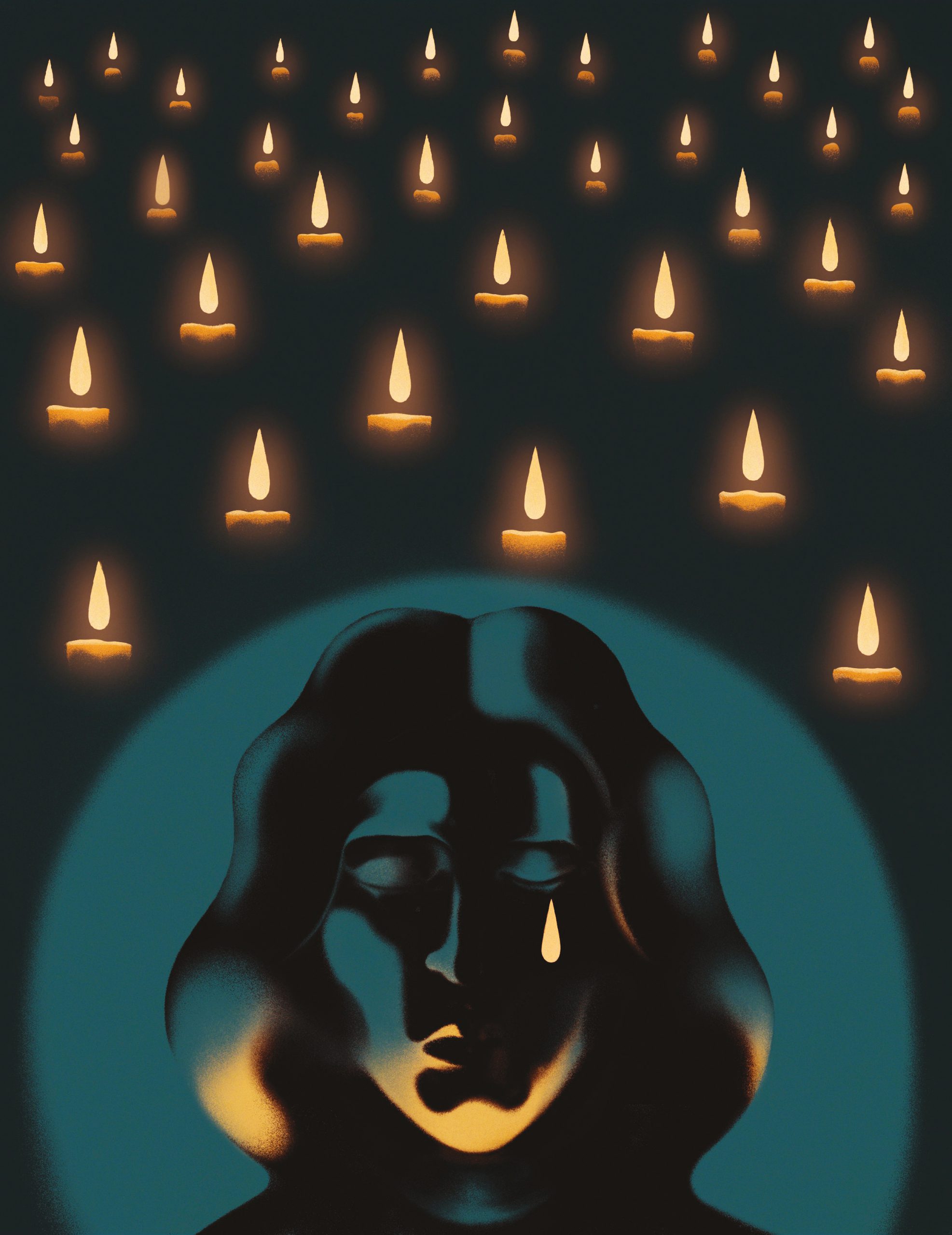
Last April I became obsessed with numbers. Death tolls, transmission rates, hospital figures, risk. I was living in New York City, the epicentre of the pandemic, where if you didn’t hear sirens you might hear birdsong on wide, empty avenues once choked with cars. In midtown Manhattan even the skyline had changed. After the offices closed and the wealthy retreated to second homes upstate, the lights went out and the nights grew darker. Ambulances criss-crossed the city at all hours; occasionally one would stop at the bottom of our apartment block.
My husband and I traded statistics the way we used to trade news from our days. By the end of April more than one in 500 residents of the city had died of Covid-19 and I kept repeating this fact when what I really wanted to say to friends and relatives was that I had no language to describe the sadness and horror I felt, surrounded by so much death. My grief and fear were amorphous, this pandemic was like a black hole that might consume you if you looked at it too closely; numbers were the only way I could give anything shape.
It can feel self-indulgent to mourn strangers when, as I am, you are among the ever-shrinking pool of people who has not lost someone close to them to the disease. But perhaps the only thing worse than submerging yourself too deeply in other people’s sorrow is to not feel it at all, to seal yourself off. I keep reading obituaries until I feel sick. I moved back to the UK in August and I have noticed how, locked down again, we’ve all grown accustomed to distancing ourselves from our emotions. We try to enforce some kind of perspective by holding our feelings at arms’ length and assessing how they measure up against all this tragedy. I feel so lonely, someone might say, but I can’t complain. I’m desperately sad and stressed, but it’s nothing really.
Researchers recently developed a “bereavement multiplier”, estimating that each Covid-19 casualty leaves behind nine close relatives. Which means at least 900,000 people in the UK have suffered a life-altering loss. In the Sixties, the anthropologist Geoffrey Gorer argued that the mass death of the First World War so overwhelmed British communities that it served to permanently reshape mourning rituals, transforming grief from a communal activity to a private emotion. The pandemic might be accelerating this process, as people are left to grieve in self isolation and to pay their respects via Zoom funerals. A friend who a few months ago lost her father to a long illness told me that she had never imagined having to say goodbye to him like this, with so few people and so little ceremony.
As a society we have not yet found a way to mourn 100,000 deaths, a figure that was until recently almost unimaginable. It does not help that we do not agree on the most basic facts about how we got here, or that some would believe, as the former judge Jonathan Sumption suggested, that certain lives are less valuable than others. It does not help that we cannot pretend to ourselves that the lives lost were martyred to a noble cause, that we cannot unite in defiance of a common enemy. We also cannot pretend that these deaths were unavoidable.
By the summer the daily Covid deaths in New York were low enough that I stopped compulsively checking the city’s figures. Restaurants, allowed to serve food outdoors only, spilled out on to the pavements. The traffic, tourists and commuters did not return. You could perch at a bar table on the road in Second Avenue, pull off your mask and enjoy a cocktail in the sunshine. The atmosphere was almost celebratory. New York’s state governor, Andrew Cuomo, whose early inaction contributed to the catastrophic death toll, published a book in October on leadership lessons of the pandemic. For families still in mourning it must have been a lot to take.
I have no doubt we’ll see brighter days soon. We’ll hug our loved ones, and flood into pubs and restaurants and lose ourselves in crowds. Those who can will try to forget all that has happened. Optimists and politicians will start looking for “opportunities”, they will talk about how we can “build back better”. But the very least we can do to honour this irreplaceable loss is to embrace our current grief and fear and anger, to pledge to remember always how these days felt, to commit to ensuring that when the next pandemic comes, as it likely will, we won’t let it catch us so ill-prepared or respond so recklessly.
This article is from our “Notes on a crisis” series
This article appears in the 27 Jan 2021 issue of the New Statesman, The Lost






